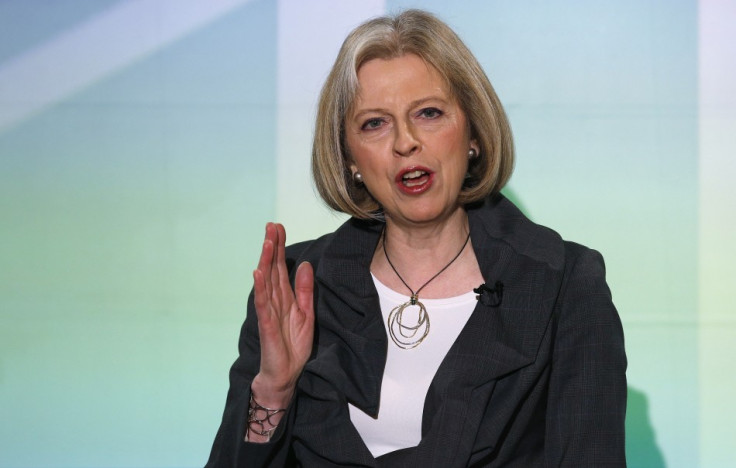Facebook, Microsoft and Google Tell Theresa May: We Oppose Snooper's Charter
Five of the world's largest internet and technology companies have sent a letter to Home Secretary Theresa May explaining they would oppose government plans to allow police to track people's emails, social networking and internet search history.

In a correspondenceleaked to both The Guardian and The Times, Microsoft, Twitter, Google, Facebook and Yahoo said they would not comply with Data Communications Bill, referred to by its opponents as the Snooper's Charter.
Plans to introduce the Bill seemed to have been scuppered in April when the Liberal Democrat leader Nick Clegg strongly opposed the measures it sought to introduce. Following the terror attack in Woolwich last week however, there have been renewed calls for the Bill to be introduced with Theresa May among those saying it was "essential for the intelligence agencies" to combat the threat of terrorism.
Under the Bill, police would be able to track people's online activity in relation to emails, instant messenging servcies like WhatsApp and VoiP servcies like Skype. Internet companies would also be obliged to retain user data such as social network activity and internet search history for up to a year, and to allow police investigations to access it.
However, the five companies said the SNooper's Charter could have "seriously harmful consequences" and would be "expensive to implement and highly contentious."
Fast-moving area
"We do not want there to be any doubt about the strength of our concerns in respect of the idea that the UK government would seek to impose an order on a company in respect of services which are offered by service providers outside the UK," explained the letter to May. "The internet is still a relatively young technology. It brings enormous benefits to citizens everywhere and is a great force for economic and social development. The UK has rightly positioned itself as a leading digital nation.
"There are risks in legislating too early in this fast-moving area that can be as significant as the risks of legislating too late."
The Snooper's Charter was thrown out of Parliament in April following opposition from the LibDems, who said the bill was "not necessarily workable nor proportionate." The Guardian has reported that the letter sent by internet companies to Theresa May is dated 18 April, a week before the Snooper's Charter was thrown out.
Earlier this month however, it was speculated that the government may still be looking into ways to monitor internet data. Briefing notes from The Queen's speech announcing a new session of Parliament explained: "In order to know who has actually sent an email or made a Skype call, the police need to know who used a certain IP address at a given point in time. Without this, if a suspect used the Internet to communicate instead of making a phone call, it may not be possible for the police to identify them.
"The government is looking at ways of addressing this issue with CSPs [communication service providers]. It may involve legislation."
Renewed calls
There have also been renewed calls to introduce the Snooper's Charter following the murder of soldier Lee Rigby in Woolwich on 24 May. Labour peer Lord Reid and former independent reviewer of terror laws Lord Carlisle both appeared on the BBC's Newsnight after the attack saying that Nick Clegg and other MPs should drop their opposition to the Charter:
"We have to learn proportionate lessons from what has occurred," said Lord Reid. "We mustn't rush to judgement. But we must ensure that the police and the security services have for the future the tools they need which will enable them to prevent this kind of attack taking place."
Lord Carlisle agreed with Lord Reid, adding: "We must ensure that the police and the security services have for the future the tools they need which will enable them to prevent this kind of attack taking place. I hope that this will give the government pause for thought about their abandonment for example of the Communications Data Bill."
However senior MI5 offiicals speaking to The Independent this week said even if the Communications Data Bill was in place, it would not have helped prevent the Woolwich attack.
Despite opposing the propositions set forward by the Snooper's Charter, the five companies that wrote to Theresa May outlined a different solution which would extend existing arrangements between internet companies and law enforcement. They proposed a bilateral initiative between the UK and the US that would allow for faster and more efficient data sharing between companies based in the United States and law enforcement in Britain.
© Copyright IBTimes 2025. All rights reserved.






















